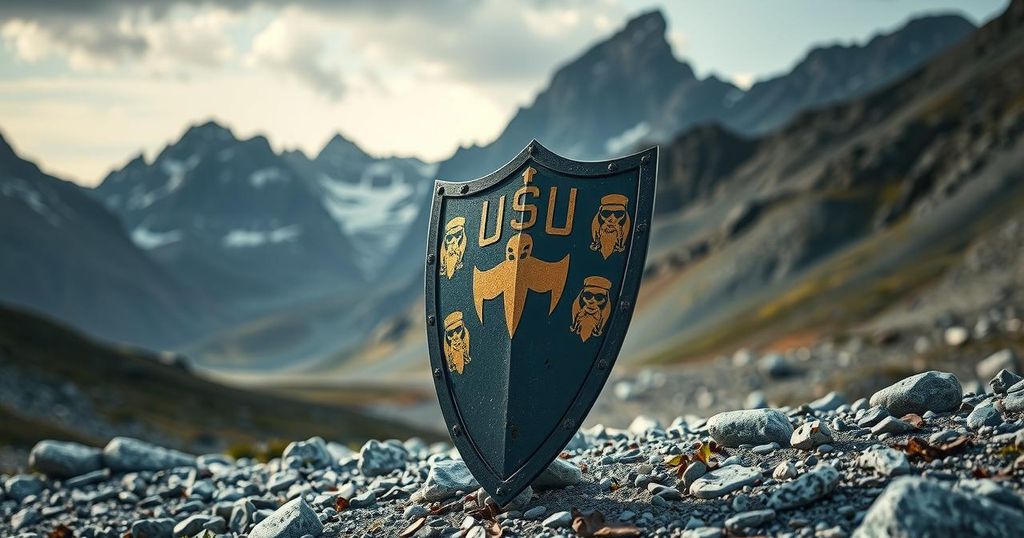DR Congo’s President Assures Vigorous Military Response Amid M23 Advances

DR Congo’s President Felix Tshisekedi has stated that his military is taking vigorous action against the M23 rebel group’s advances, which are reportedly backed by Rwanda. He criticized the international community’s failure to respond to the escalating crisis, which has triggered a significant humanitarian emergency in the region. Despite calls for dialogue, the situation remains tense with reports of territorial gains by the M23 and widespread displacement among civilians.
On Wednesday, Felix Tshisekedi, the President of the Democratic Republic of Congo (DRC), asserted that his military was mounting a robust response against the advancements of the M23 rebel group, which is reportedly backed by Rwanda. He expressed disappointment with the international community’s inaction amid the escalating security crisis in eastern DRC, stating that their silence was an “affront” to the nation. Tshisekedi stated that a coordinated military operation is in progress against what he described as “terrorists” and their supporters.
The M23 armed group’s recent offensive has resulted in significant territorial gains in eastern DRC, particularly the key city of Goma. Amid this turmoil, concerns regarding a humanitarian crisis have intensified, as the region, rich in minerals, has endured decades of conflict originating from historical tensions dating back to the Rwandan genocide. Tshisekedi condemned the lack of international intervention and warned that the situation could escalate further in the region.
Reports indicated that M23 rebels advanced on another front, capturing two districts in South Kivu. Despite these developments, the Congolese army has remained silent regarding the recent territorial losses. Clashes in Goma resulted in over 100 fatalities and nearly 1,000 injuries, leading to a temporary lull in fighting as residents emerged from their homes and faced dire conditions, such as food and water shortages.
Despite calls for dialogue, Tshisekedi declined a meeting with Rwandan President Paul Kagame to address the crisis. In a summit organized by the East African Community, there were calls for a peaceful resolution and direct engagement between the DRC government and various stakeholders, including the M23 group. Angola has urged swift talks between the DRC and Rwanda following earlier failed negotiations.
M23 fighters have seized various strategic points in Goma, intensifying the already dire humanitarian situation, as approximately half a million individuals have been displaced in recent weeks. The local population has faced increasing hardships, with severe shortages of essential resources. In particular, the lack of services and disruptions have left residents feeling isolated from the rest of the world, compromising their well-being.
As tensions rise, protests erupted in Kinshasa, with citizens targeting foreign embassies in response to perceived inadequate international involvement in the conflict. In anticipation of escalated violence, the United States and other nations have advised their citizens in the DRC to depart, while bilateral relations remain strained. Rwanda’s representatives have indicated that the M23 offensive will persist despite international appeals for restraint and withdrawal.
The DRC is abundant in valuable minerals, which have become a focal point in this ongoing crisis, with accusations surfacing regarding Rwanda’s motivations tied to economic interests. Despite Kigali’s denials of military involvement, the situation remains precarious, and international observers stress the urgent need for dialogue and conflict resolution to prevent further instability in the region.
The Democratic Republic of Congo has experienced prolonged conflict, particularly in its eastern regions, largely fueled by historical grievances stemming from the 1994 Rwandan genocide. Various armed groups have exploited the unstable security conditions to assert control over resource-rich areas, culminating in a devastating humanitarian crisis. The M23 group, a significant military force in the area, has recently intensified its campaign, sparking renewed concerns about the potential for wider regional conflict and the dire implications for local populations. As calls for international intervention heighten, the dynamics between regional powers, particularly Rwanda and the DRC, are critical to addressing the ongoing turmoil.
In conclusion, President Tshisekedi’s affirmations regarding the DRC’s military response reflect the gravity of the conflict with the M23 rebels and the urgency of the humanitarian crisis. His condemnation of international inaction underscores the need for a more engaged response from the global community. Despite ongoing tensions and military offensives, the potential for dialogue remains, albeit complicated by historical grievances and accusations of foreign interference, making the path forward challenging yet essential for regional stability.
Original Source: www.france24.com








